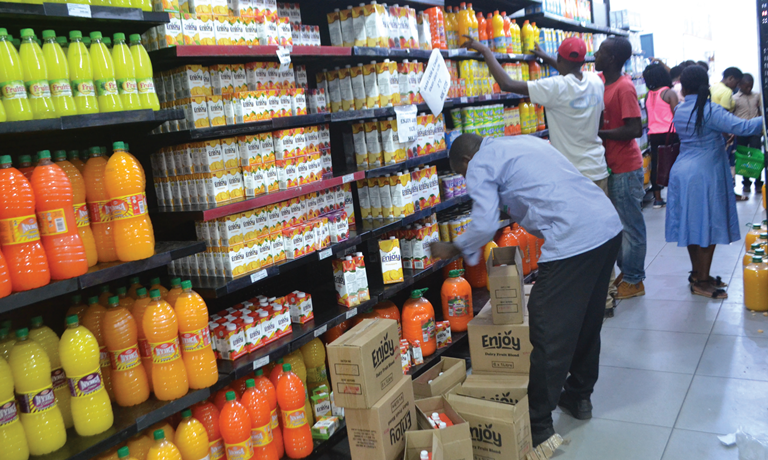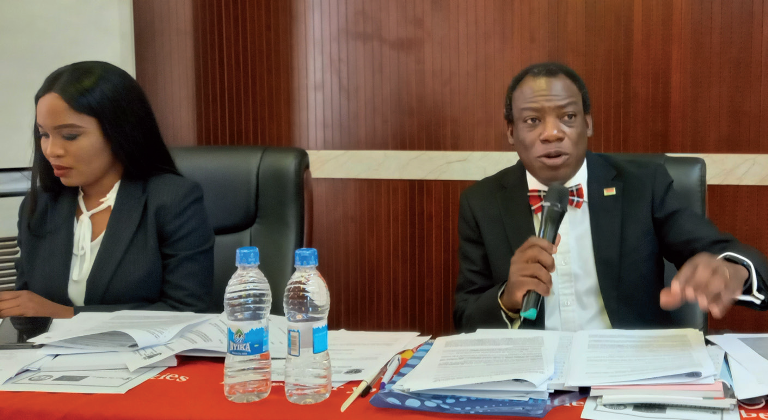Analysts have said the recent move by the Reserve Bank of Malawi (RBM) to raise the policy rate by two percentage points will lead to an increase in the cost of production and make it hard for the country to create jobs.
Speaking in interviews on Thursday, they said the move will also increase the budget deficit, given the looming loss in purchasing power.
In recent months, prices of most basic needs have been on the rise
The analysts said the situation might affect the delivery of some of the projects planned for the fiscal year.
When presenting the 2022/23 National Budget statement, Minister of Finance and Economic Affairs Sosten Gwengwe indicated that the fiscal plan has been formulated with assumptions that inflation rate would average 9.1 percent and the policy rate at 12 percent.
But former Finance and Economic Planning minister Joseph Mwanamvekha on Thursday said the upward revision of the policy rate would make it hard for government to smoothly execute the budget.
He said: “In the first place, the budget itself was unrealistic because it did not factor in the realities of the macroeconomic environment. There was an anomaly as bank interests have been seen to be above the inflation which should not be the case.
Tchereni: Treasury will have to adjust
“In view of the development, we should expect to see high production costs which will lead to an increase in various goods and services.”
Mwanamveka further said creating jobs on the other hand will be a tall order as industries will now be cautious to hire in an environment where costs are very high.
Economics statistician Alick Nyasulu said as fiscal deficit becomes prevalent on a dwindling purchasing power, government may resort to borrow domestically to finance the deficit.
“Most worrying though is that inflation in the current is mainly exerted by external factors and we might even see further interest rate rises to tame it which will simply worsen government debt until we get concessionary external budgetary support,” he said.
Malawi University of Business and Applied Sciences associate professor of economics Betchani Tchereni said the government will have to adjust the expenditure figures as the development clearly puts government in a tough balancing act.
He said: “Worrisome will be the case that the revenue figures may not respond positively or they may not move with the inflation itself.”
For consumers, the development which is coming at a time when individual loans are dominating banks credit basket, accounting for the largest stock of outstanding private sector credit, spells doom for households.
Presently, RBM figures show that community, social and personal services sector hold the largest share of outstanding private sector credit at 32.7 percent.
Consumers Association of Malawi executive director John Kapito has since indicated that the development will lead to higher default rate on loans as servicing of the same will go up.
“Consumers are already struggling to service their current loans due to the tough economic environment. Now with elevated interest rates, we can only imagine tougher times for consumers,” he said.
Newly formed Black Indigenous Business Network director George Macheka fears the rate hike will increase the cost of credit and will put businesses in a tough situation.
“Most businesses operate on bank credit and any increase in cost of financing will certainly have a huge impact on the cost of doing business.
“We thus appeal to all banks to respond with caution and to wear a human face when and if they adjust the lending rate,” he said.
On Wednesday, RBM Governor Wilson Banda, who chairs the Monetary Policy Committee (MPC), announced that the bank has revised upwards the policy rate to 14 percent from 12 percent.
Banda also announced an upward revision of the 2022 inflation rate projection from 10.4 percent to 12.3 percent, a decision he said has, among others, taken into account the inflation risks, trend and outlook which points to persistence of inflation pressures.
In reaction to the move on Wednesday, Economists Association of Malawi executive director Frank Chikuta said the stance was expected as it was obvious that RBM would raise the policy rate as both economic fundamentals and outlook have.
On his part, Catholic University economics lecturer Hopkins Kawaye agreed with Chikuta, saying the move is meant to ensure price stability given the rising inflation.
The post Analysts see elevated production costs, unemployment appeared first on The Nation Online.
 Moni Malawi
Moni Malawi 

